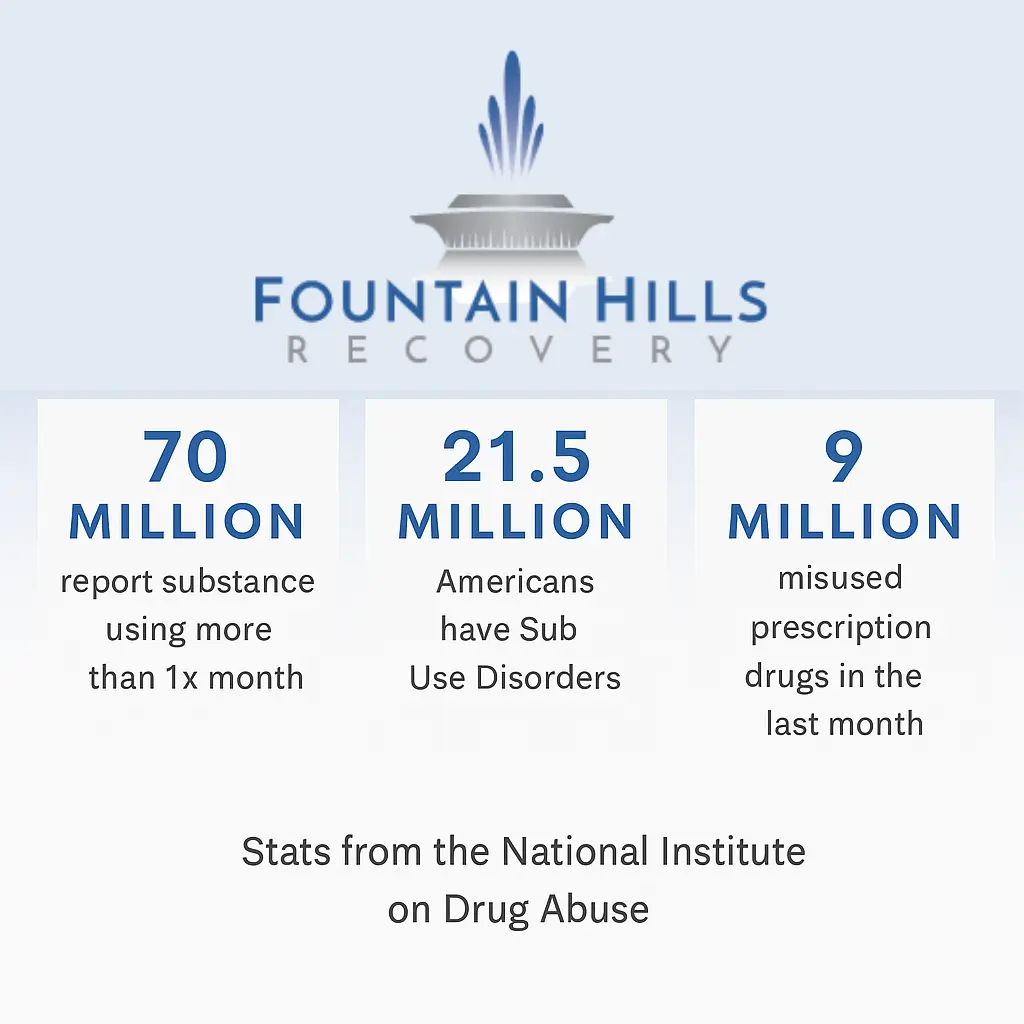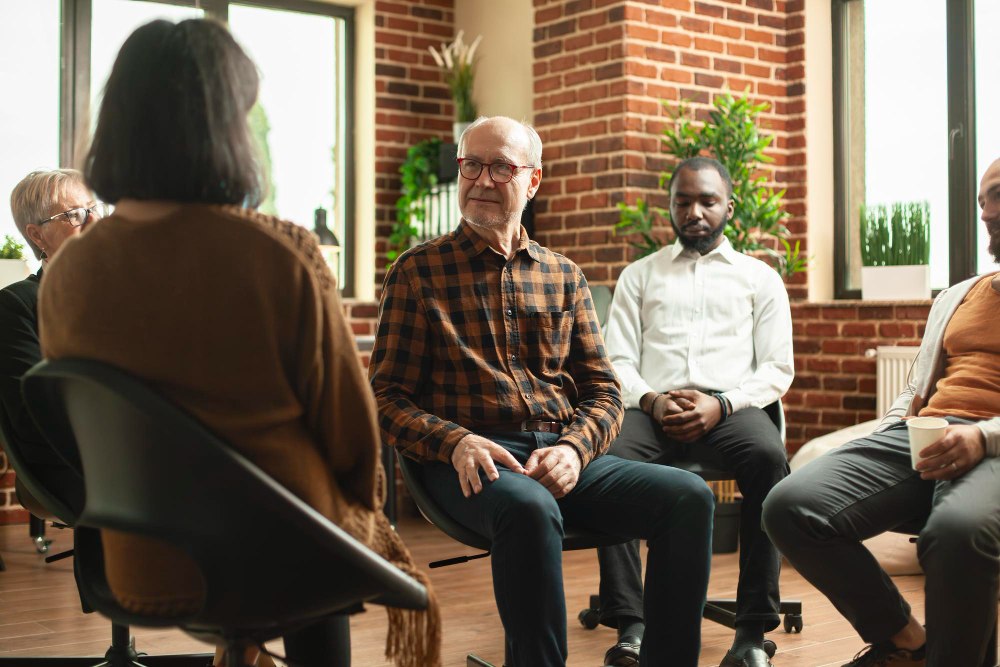There’s a moment I’ve seen over and over again in therapy—a client looking me dead in the eye and asking, “But what if I stop using and I’m not… me anymore?”
They’re not just worried about withdrawal symptoms or cravings. They’re afraid that getting sober might erase something essential: their creativity, their social confidence, their emotional depth. They wonder if the part of them that lights up a room or writes a song or connects with people—will just go dark.
At our Dual Diagnosis Treatment Center in Fountain Hills, AZ, we hear this fear often. And we take it seriously—because it’s real. But so is the truth: sobriety doesn’t take away who you are. If anything, it helps you come home to it.
Substance Use Can Feel Like Part of the Identity—Especially for Creative People
Many of the people we treat didn’t use substances to check out. They used them to feel more—to feel deeper, faster, bigger. Alcohol made them bolder. Marijuana quieted the inner critic so they could paint. Cocaine helped them write for hours with laser focus. Psychedelics opened emotional portals.
It’s understandable why they feel afraid to let that go.
For years, substances weren’t just an escape. They were a tool. A co-pilot. Sometimes, even a muse.
So when someone walks into treatment and says, “I don’t know who I’ll be without it,” we don’t dismiss that. Because we’ve seen how true that can feel—especially in the early stages of recovery.
What Sobriety Actually Changes—and What It Doesn’t
Let’s clarify something: sobriety isn’t a personality transplant. But it does shift the way your brain, body, and emotions function. That can be disorienting at first.
Here’s what typically changes:
- Your nervous system calms down. That means less reactivity—but also less intensity at first. Things may feel muted before they feel vibrant.
- You feel things more honestly. Not more dramatically, but more truthfully. You might feel sadness without numbing, joy without amplification.
- Your sense of time returns. Days don’t blur. Conversations feel slower. That can be beautiful—and also weird at first.
- Your creative process may shift. You may write less in a single night—but it might be more meaningful, less frantic.
But what doesn’t change?
- Your instincts.
- Your emotional depth.
- Your ability to connect.
- Your intelligence.
- Your sense of humor.
- Your spark.
Sobriety doesn’t dull your light. It takes the dimmer switch off and gives you full access again.

Why Dual Diagnosis Treatment Matters for Identity Work
If you’re dealing with both substance use and a mental health condition like depression, anxiety, PTSD, or bipolar disorder, the layers get more complex. You’re not just removing a substance. You’re also untangling emotional pain, trauma, or neurological patterns that may have shaped your identity for years.
That’s why dual diagnosis treatment is essential. It allows us to:
- Understand what the substance was helping you manage
- Address the underlying mental health conditions without shame
- Explore your core identity without destabilizing you emotionally
- Introduce medication or therapy that supports—not stifles—your growth
This isn’t about changing who you are. It’s about helping you safely uncover who you’ve always been—underneath the noise.
But What If I Get Boring?
This is a fear I hear often. Some version of:
“I won’t be funny anymore.”
“No one will invite me out.”
“I’ll just sit at home and knit.”
“My art will suck.”
Here’s what I’ve seen instead:
- Clients who discover new social dynamics that are more real and energizing
- Artists who feel more connected to their work because it comes from clarity, not chaos
- People who laugh more freely, not because they’re drunk, but because they’re present
- Relationships that deepen because they’re no longer based on shared escape
You might knit, sure. But you might also fall in love with your music again. You might start hiking, or volunteering, or hosting movie nights. Sobriety doesn’t shrink your world—it widens it in ways you didn’t think were possible.
Identity Isn’t Static—It Evolves With Care
If you’re afraid sobriety will change who you are, that means you’re someone who cares deeply about your identity. That’s a strength—not a liability.
The truth is, none of us stay the same forever. We grow. We recalibrate. We outgrow old roles and step into new ones.
Sobriety doesn’t force that. It just makes space for it to happen in a way that’s not distorted by the haze of survival mode.
And you won’t be doing it alone. In dual diagnosis treatment, identity isn’t an afterthought—it’s one of the most sacred parts of the work.
Real Words from Real Clients
“I thought recovery would make me dull. But now I cry at movies, write again, and actually remember the things I say to my friends. I feel like I’m more myself than I’ve ever been.”
– Alumni, 2022
“I didn’t think I could perform without Adderall. Turns out, I just needed rest, structure, and to stop burning out every three weeks. I still crush my sets—just without the crash.”
– Former client, 2023
FAQ: Will Sobriety Change Who I Am?
Is it normal to feel scared that sobriety will change my personality?
Yes. Especially for people who’ve used substances as a way to enhance or manage their identity, this fear is deeply valid. You’re not alone—and you’re not weak for feeling unsure.
What’s different about a dual diagnosis treatment center?
A dual diagnosis treatment center like ours in Fountain Hills, AZ offers integrated care for both substance use and mental health. That means we help you explore identity, trauma, mood, and recovery as interconnected—not separate issues.
Can I still be creative without substances?
Absolutely. Many people rediscover or deepen their creative expression in sobriety. You may need time to reconnect with it, but the creativity isn’t gone—it’s just healing.
How long does it take to feel like myself again?
It varies. Some people start to feel clearer within weeks. For others, it can take several months. The key isn’t rushing—it’s allowing your nervous system to regulate and your emotional life to stabilize.
What if I liked the person I was when I used?
That version of you wasn’t fake. It was part of you—just not the whole you. Sobriety doesn’t reject that version; it helps you integrate it with who you’re becoming.
📞 Call us today. Let’s talk about identity, not just sobriety.
If you’re wondering whether you’ll still be you without substances—let’s talk, Scottsdale.
We understand the fear. And we’ve seen what happens when people face it gently, supported, and seen. Call (800) 715-2004 or visit our Dual Diagnosis Treatment Center in Fountain Hills, AZ to learn more.





